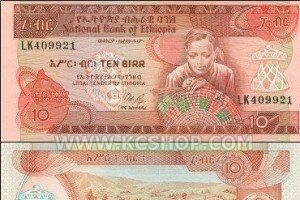Another case, although not in court, stands out because accuser Nyagaka Anyona Ouko has produced proof of a copyright certificate leaving the legal fraternity scratching their heads and others raising questions.
HumanIPO previously reported and asked the question “Is M-Pesa really Kenyan or British” and as part of that report mentioned Ouko, a man from Kenya who holds an authentic (as verified by HumanIPO sources) Kenya Copyright Board certificate for “Mobile Cash Transfer”.
His claim to being the “M-Pesa Innovator” becomes more curious as we learn (as per half year results released by Safaricom) Safaricom pays a “license fee” to Vodafone in the UK for their use of M-PESA in Kenya. This raises questions of whether Safaricom or Vodafone hold any copyrights or patents whatsoever in Kenya for mobile money transfer. M-PESA was launched in April 2007.
Before we get ahead of ourselves, let us tell Ouko’s story from his early days.
Driven By Necessity
The story starts in 2002, when Ouko wanted to send money to his ailing mother in a remote village. Ouko faced limited methods of transferring the money and takes up the story: “The only legal way of sending money by then was through the use of Money Order or Express Money Order which were being offered by the Postal Corporation of Kenya. However those methods required that my mother had to travel some distance to pick up the money. I also had to find time and travel to the local post office where I could do the transaction.”
He continues: “The most popular way of sending money then was by bus. However one had to hang around the bus station for buses plying the upcountry routes. I come from Gesusu village and by then Kisii District , currently Kisii County. So I could hang around and on a good day find a fellow villager whom I could entrust with the money. On some occasions of course the money never got home.”
With this need in mind, Ouko had a “Eureka” moment and realised: “If I send my mother some airtime, she could probably convert it to money somehow. This is because I had on occasions sent airtime before. This I could do by scratching the number, and read it to the person at the end of the line. The person could jot it down and then load it later.”
So he went on to arrange with a shopkeeper friend of his in his mother’s village that he send him some airtime then he in return gives my mother some cash. The shopkeeper agreed and only charged him a 10 % “administration” fee.
Countrywide Expansion
With the agreement with the shopkeeper in his mother’s village working smoothly, Ouko set out and started planning to roll out a similar method of money transfer across Kenya. The plan as he retells his story, was to have an agent in every town.
“The movement of the money was to be sms based. The only security in the system by then was the number from which the message was coming from. So long as the agent knew the number used to send the message he went ahead and paid the money.” he said.
Ouko then went ahead and started setting up agents across various towns in Kenya, starting with Kisii, Kisumu, Nakuru and Nairobi. He unfortunately faced some hurdles in these early stages.
“However before the business could take off I discovered I needed a bank account. This is because the agents required a medium through which they would transfer the money faster. Just to be sure the agents don’t lack money when they are paying out. The plan initially was to ensure the agents had cash for the transactions. The only medium which was moving was the message. Then the balancing of books would be done at the end of the month,” he elaborated.
As if this hurdle was not enough, the whole business almost came to a crashing end when Ouko experienced even more obstacles.
HumanIPO continue Ouko’s story in Part II.




















































